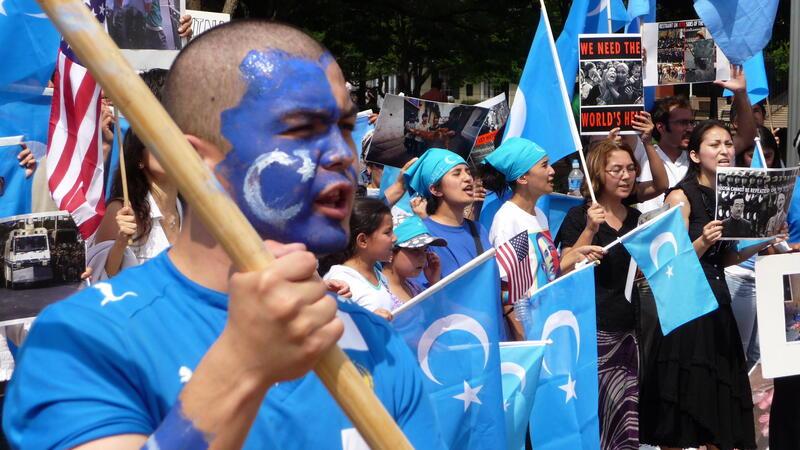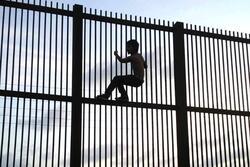The Uyghur Genocide Is a Jewish Issue
As I staggered through Auschwitz on a trip to Poland in 2020, my friend turned to me with tears in her eyes. She blubbered, “It is so important to learn about the atrocities that took place in 1939, but what about the ones that are happening right now?” It is imperative to study our history, in order to better understand our past and in turn improve our present.
I returned home holding onto those words, along with a combined sense of apprehension and determination. A short while later, I heard about the inconceivable genocide taking place in Xinjiang, China against the Uyghur population. The atrocity had already been ongoing for several years. Why was I just learning about it?
Overcome with the same emotions I had felt standing in the concentration camps that my grandparents were deported to, I was compelled to do something, anything. With various protests taking place all over the world for other significant causes, my immediate thought was to protest outside the Chinese Embassy. But to be heard, I would need a sufficient number of people alongside me. With the internet being the 21st century’s library and reference center, I decided to create a social media account dedicated to this cause. I started the Instagram account @jewsforUighurs. I resolved that even if it reached only a handful of people, it would still count for something. I was amazed by how many people had never heard about the Uyghur genocide until stumbling upon my page, and how learning about these atrocities spurred them towards action. As time has gone on, my account has gained traction, with people constantly thanking me for stepping up and bringing this to others attention. I share petitions and news articles; I give guidance on how to contact your local government. I am standing up. I am making noise.
If you have not heard about this situation; since 2017, the Chinese government has waged a war of oppression against Uyghurs, a Turkic-speaking minority ethnic group indigenous to China. Oppressive laws have included everything from bans on particular religious garments and practices to expansions of "re-education camps." These atrocities have gone under the radar for too long; for a while, no one really believed that they were happening, partly because China acted in a subtle and indistinct way that did not attract widespread global alarm immediately. As researcher in Xinjiang affairs, Joanne Smith Finley puts it, “It’s not immediate, shocking, mass-killing on the spot type genocide, but it’s slow, painful, creeping genocide.”
Xinjiang, China is remote, and the Chinese government has made it exceedingly difficult to access any information. However, today we have video footage of Uyghur people blindfolded, with shaved heads, being put on a train. In the past year, more evidence has come out from journalists and researchers documenting torture, sexual assault, forced abortions, and murder. While I am cautious about comparing anything to the Holocaust, there are clear parallels between what took place 75 years ago and what is happening right now. With thirteen tons of human hair forcibly shaved from Uyghur women and over a million members of this minority incarcerated, it’s not hyperbolic to say this is happening again.
I cannot sit idly by when there are clear similarities between what my grandparents endured in the Holocaust and the systemic violence Uyghur families are currently experiencing. Jewish people should be at the forefront of issuing the call of "Never Again" whenever and wherever we see mass injustice. While we lament the world's silence back then, we at times excuse it because of lack of technology and fast modes of communication. With social media, maybe we would have responded much sooner. Well, we have social media now. Why aren’t we doing anything?
How is it conceivable that in the 21st century, with such technological and medical advances, we are at such a low point for basic human rights? In terms of fighting for tolerance and acceptance, we have an outstanding amount of work to do. It may seem overwhelming, and we may not know what steps to take. But there is nothing worse than doing nothing. In the words of Elie Wiesel, “What hurts the victim most is not the cruelty of the oppressor, but the silence of the bystander.” This is not a political issue, but a human issue, one that we are all obliged to do something about.
I do not believe that the cry of “Never Again” applies exclusively to atrocities against the Jewish people for exclusively Jewish use, to highlight injustice against Jews. It is a call to be used by everyone, concerning all peoples everywhere. I implore you to take action: learn more about this situation, sign a petition, write a letter or email to your local government representative and raise as much awareness as possible to encourage others to stand up against this gross injustice.






